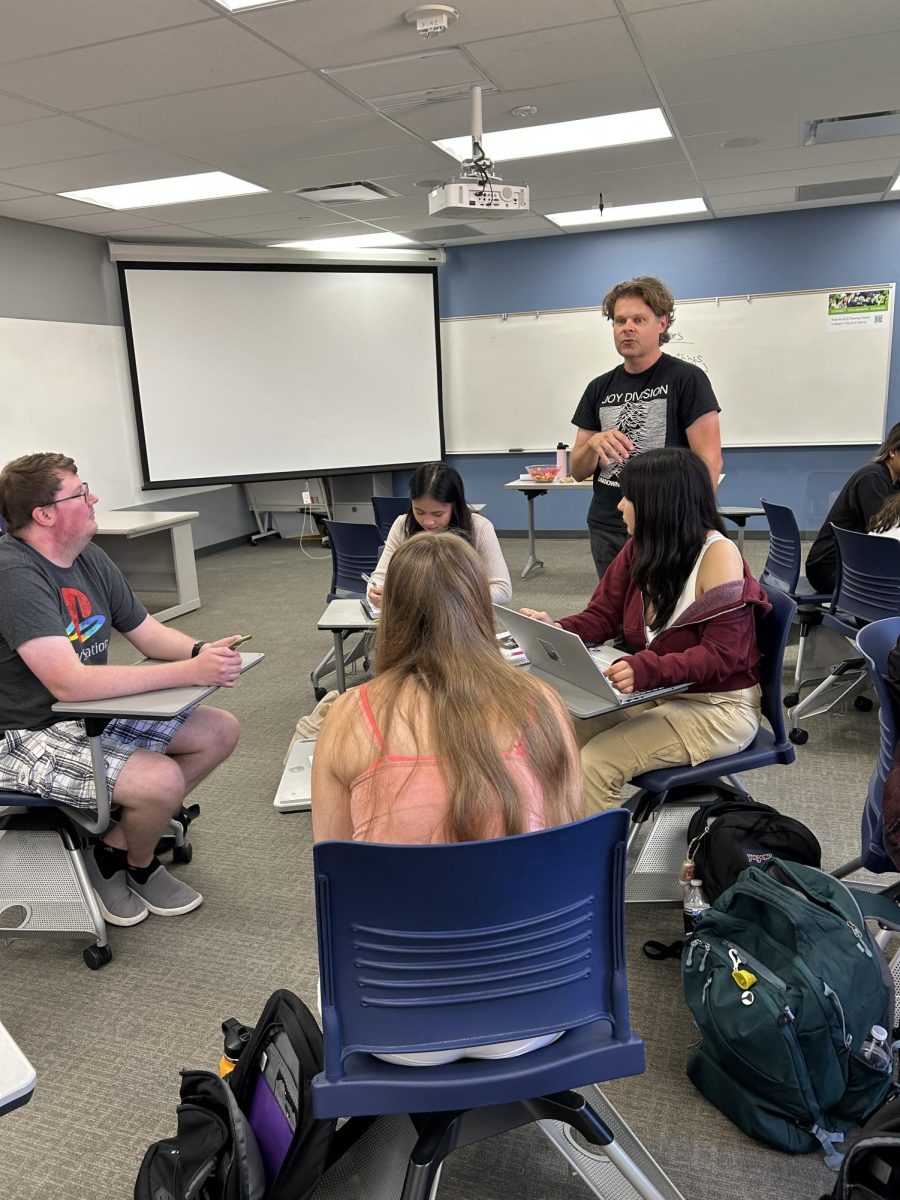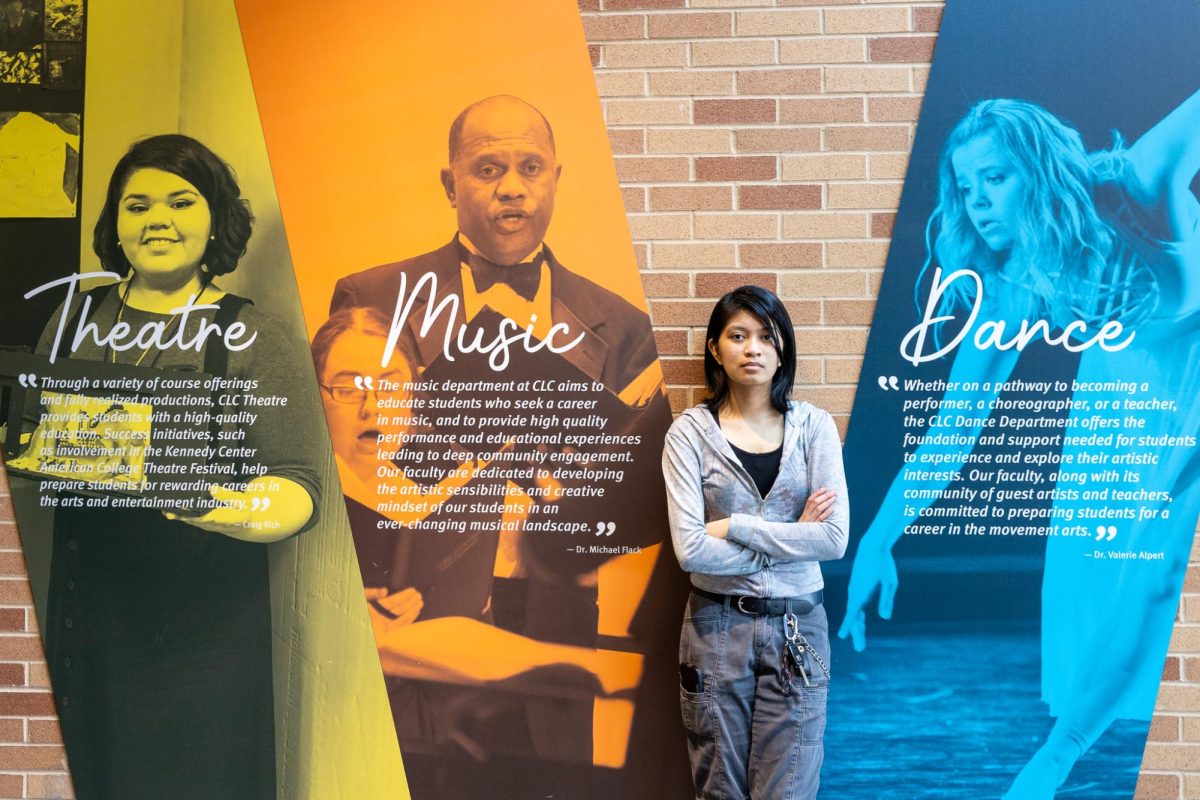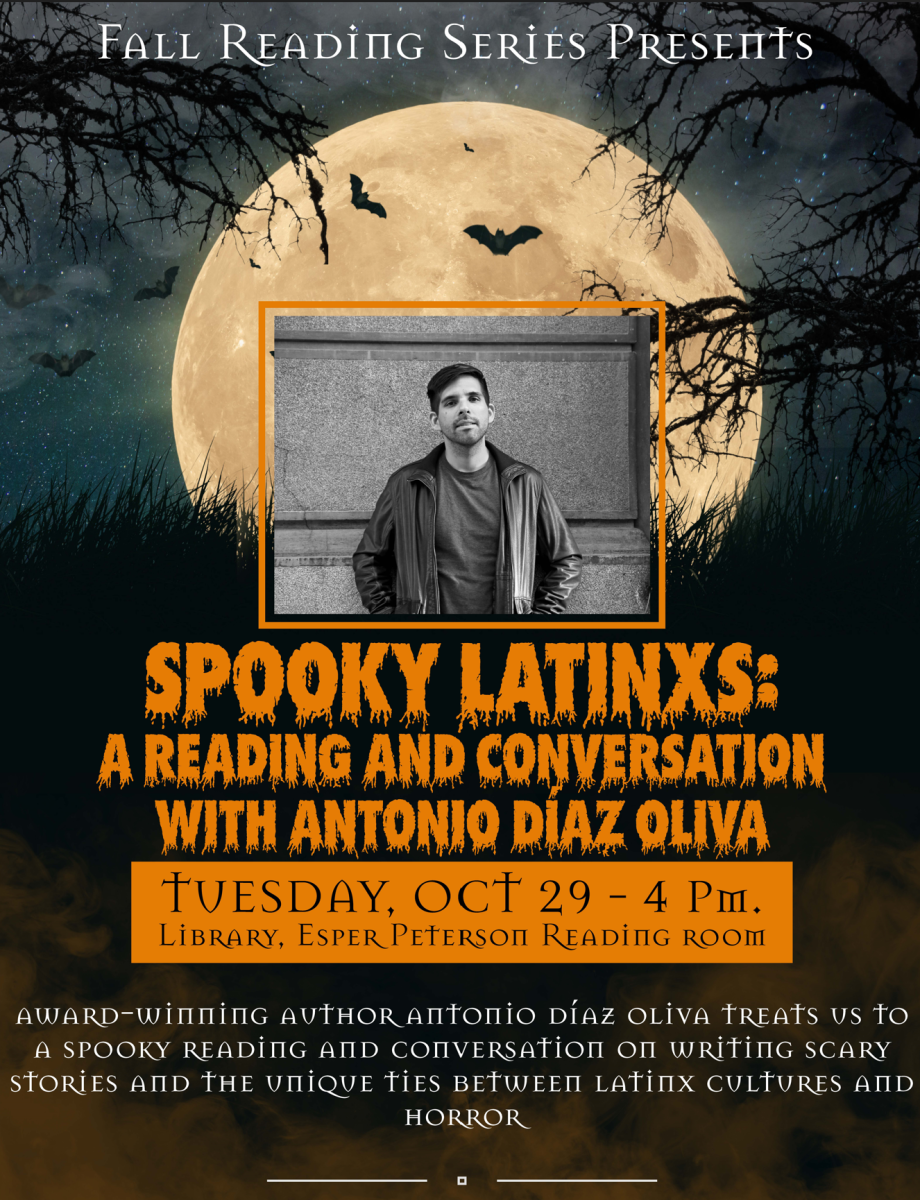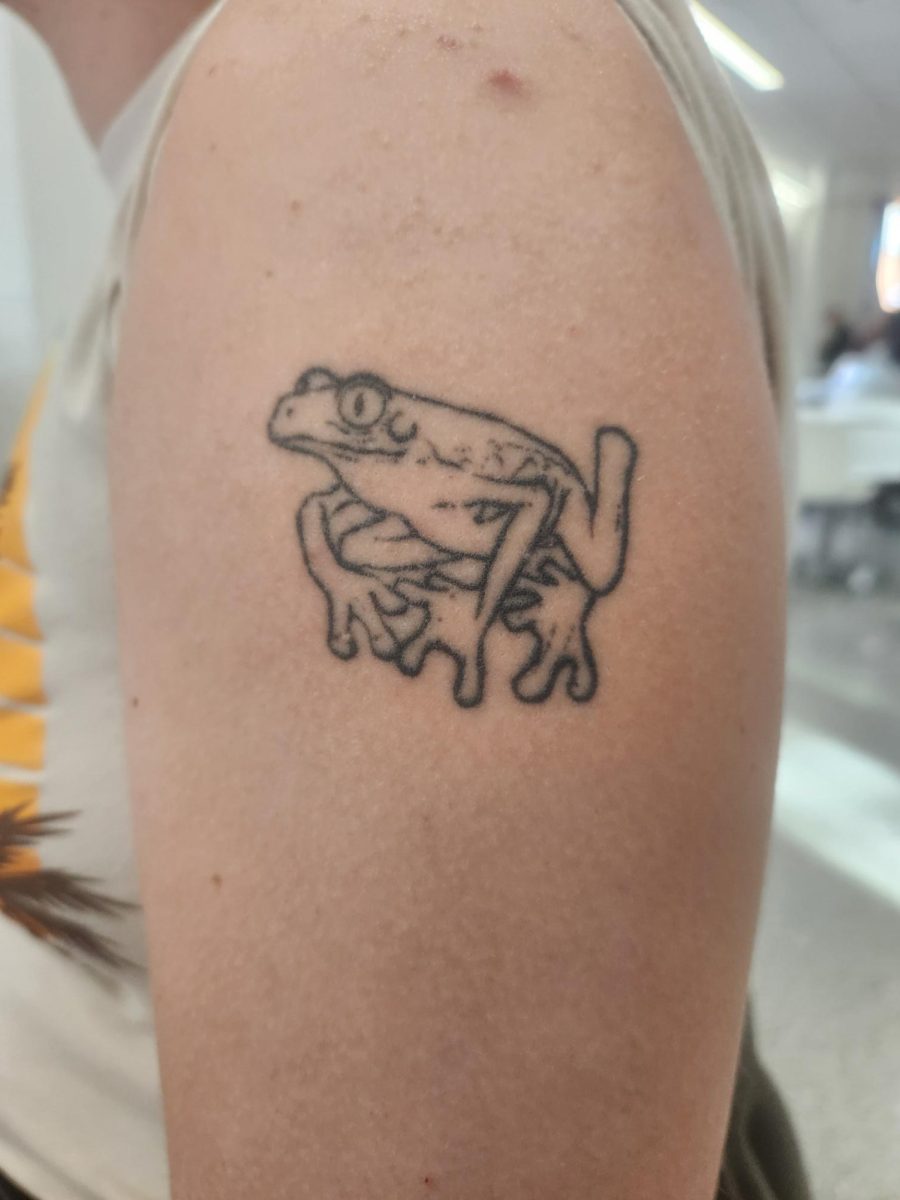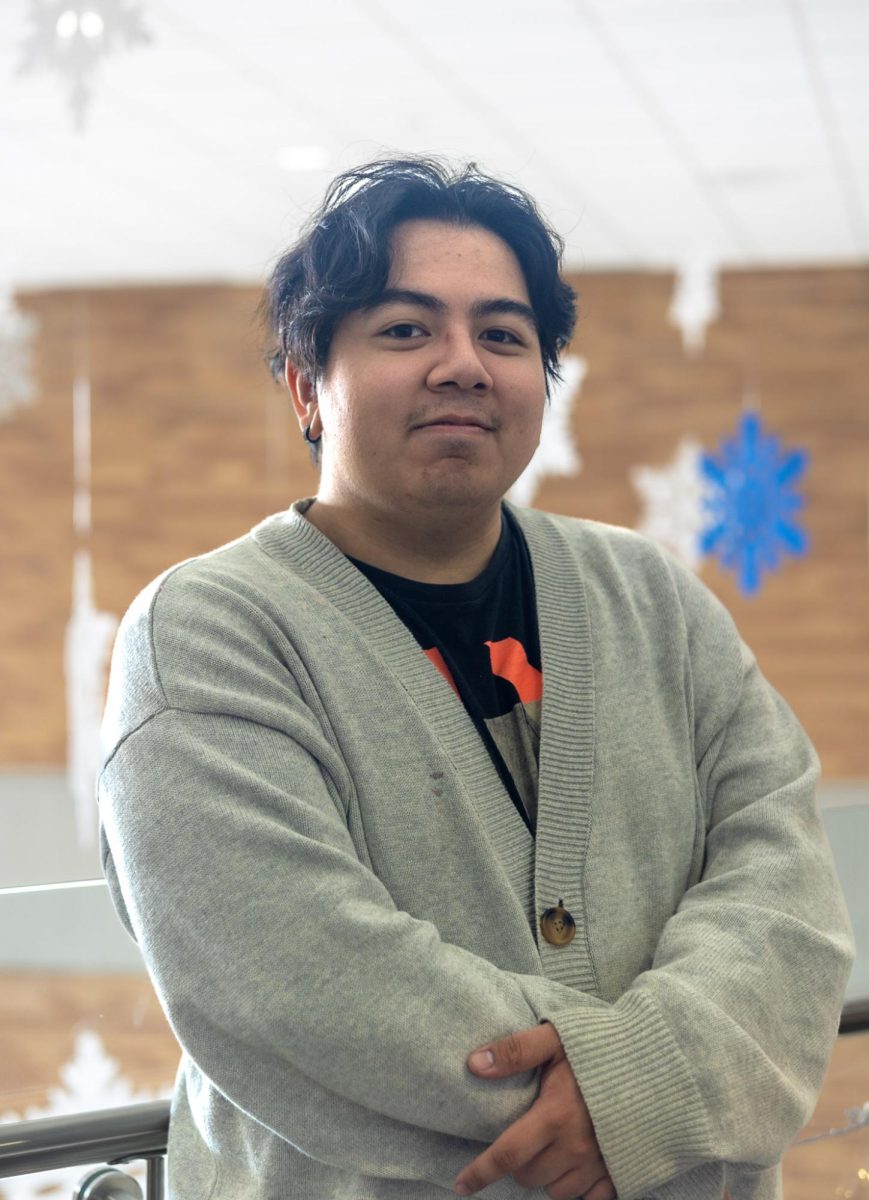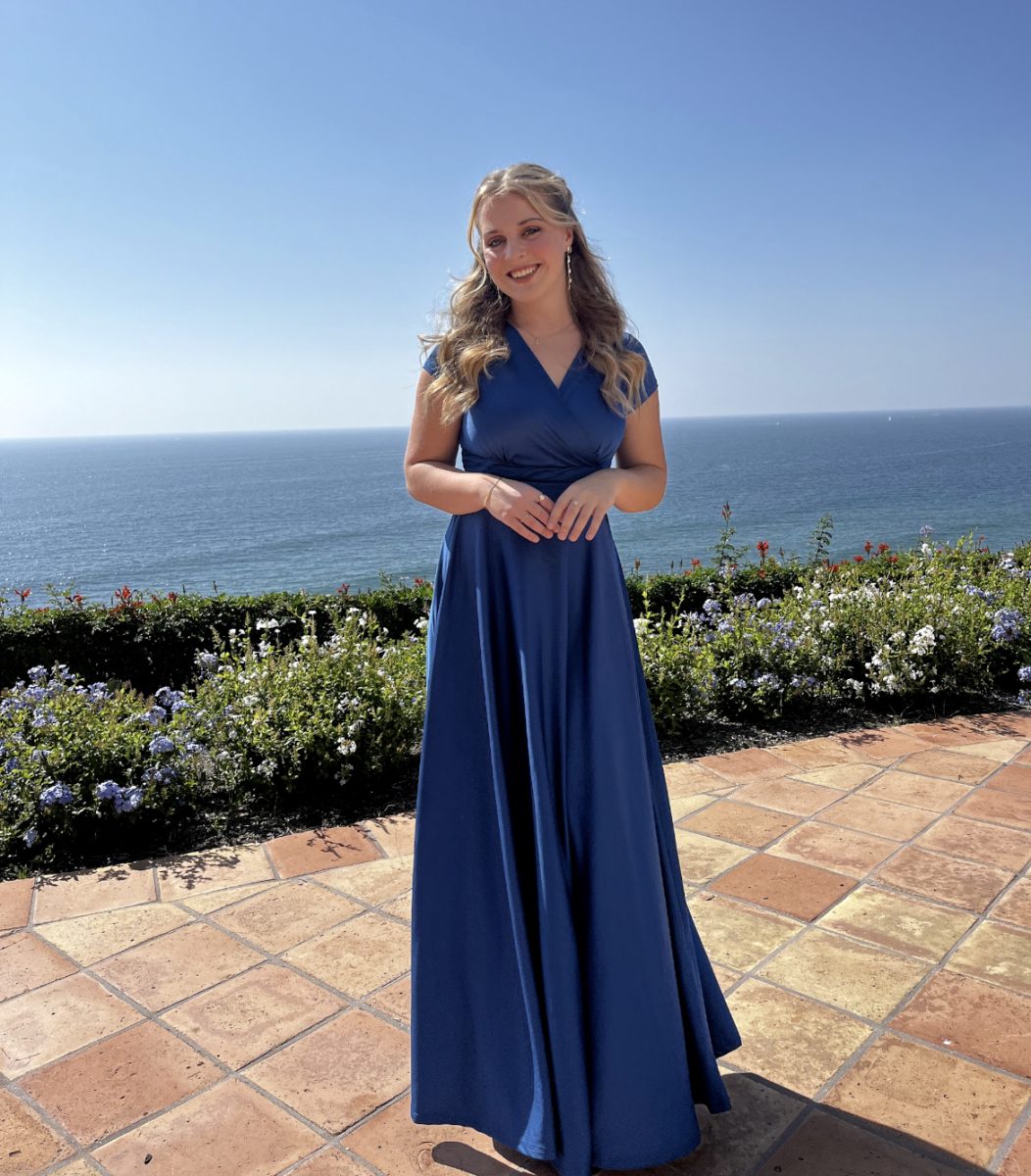CLC Communications Professor Joel Chmara once set out to be the play-by-play voice for the Chicago Bulls or an ESPN Sportscenter anchor. He was steered in another direction in college: the performing arts.
That new path was one away from sitting courtside at the United Center, ultimately leading him to poetry slam and taking all of those experiences into the classroom.
Chmara’s path started in college when he thought he wanted to be in broadcast journalism, but Chmara was not a great public speaker.
“I was not very good at public speaking,” Chmara said. “I took a speech class, and the speech class was taught by the coach of the speech team. He recruited me to get into that and said, ‘Well, this is what you want to do. You don’t just take a speech class. You need to invest in this.’ So then from there it opened my eyes to all kinds of performance.”
Chmara is grateful for that bit of advice because it really showed him the way to a different side of communications, but one he found to enjoy.
“One of the events was poetry, and you learned how to be kind of a multifaceted performer,” Chmara said. “So that event really spoke to me.”
Poetry Slam in Chicago was what really opened the door to Chmara.
“I found someone who was just an amazing inspiration and became a mentor,” Chmara said. “He opened up all these opportunities for me, and I traveled around the country with his ensemble, then was in the National Poetry Slam finals. Then I got dubbed to be on HBO’s Def Poetry and from there we had opportunities to tour around the country.”
Chmara graduated from Northern Arizona University with a degree in broadcast journalism. He started working at ESPN Radio in Chicago in the late 1990s, But it was not what he thought it was going to be.
“It was really toxic, late ‘90s alpha-dude energy,” Chmara said.. “It just was not for me. I just wasn’t going to thrive in that situation.”
But joining the speech team in college started to pay dividends for Chmara when he decided to leave ESPN Radio and pursue a different path. He then went to graduate school atIllinois State University. Being a member of the speech team, he was able to teach as a part of his graduate assistantship.
“Once I started teaching, I realized that this is just so much more fulfilling,” Chmara said. “Immediately, that became my new focal point.”
Once Chmara started teaching, he realized that performing really became the “launching pad” for him to be that teacher he is today. “On the speech team there were 11 different events,” Chmara said. “Some of them are funny speeches, some are persuasive speeches, and some are poetry.
“You become multidisciplinary, and you learn lots of different genres. You don’t really label yourself as a performer, and you’re exposed to totally different walks of life, so you become curious and empathic toward others. All of that kind of informed me how I became a teacher when I was ready to get into that.”
Chmara “soft retired” from touring and performing poetry when his son was born about 10 years ago. But being able to teach and have about two or three performances a year is what he really enjoys doing. One thing he has learned both as a performer and a teacher is that it is a very different world than it was five to 10 years ago.
Chmara uses his platform as a teacher to bring attention to issues that are currently affecting his students and his community because he feels it is super important to be able to use his platform to bring awareness.
“In the more recent years with the Black Lives Matter movement, the Me-Too movement, and then just having colleagues who were from diverse backgrounds, who I listened to more or understood that I should have an active role in amplifying and advocating and being an ally,” Chmara said. “You need to use your point of privilege you know as an important voice or use your power that you naturally hold.”
Chmara realizes that students are “more resistant to communicate out loud” especially as a result of the pandemic or what is going on in their own personal lives. He thus chooses to start most of his classes with a “Question of the Day.” These questions range in topics from something the students are looking forward to in their lives or their biggest pet peeves. Most of them have nothing to do with the topics of conversation going on in the classroom, but Chmara uses them as a way to “let them open up.”
“I just like to get to know them a little bit more, but I also love that they do get more experience speaking up each day, and all of that is informal training for them to give speeches,” Chmara said. “For me, it works on a lot of levels. I’m just curious about my students and that kind of investment or interest in them is the kind of atmosphere I am trying to create.”
Editor’s note: Students interested in joining the speech and debate team are encouraged to contact Professor Chmara.

